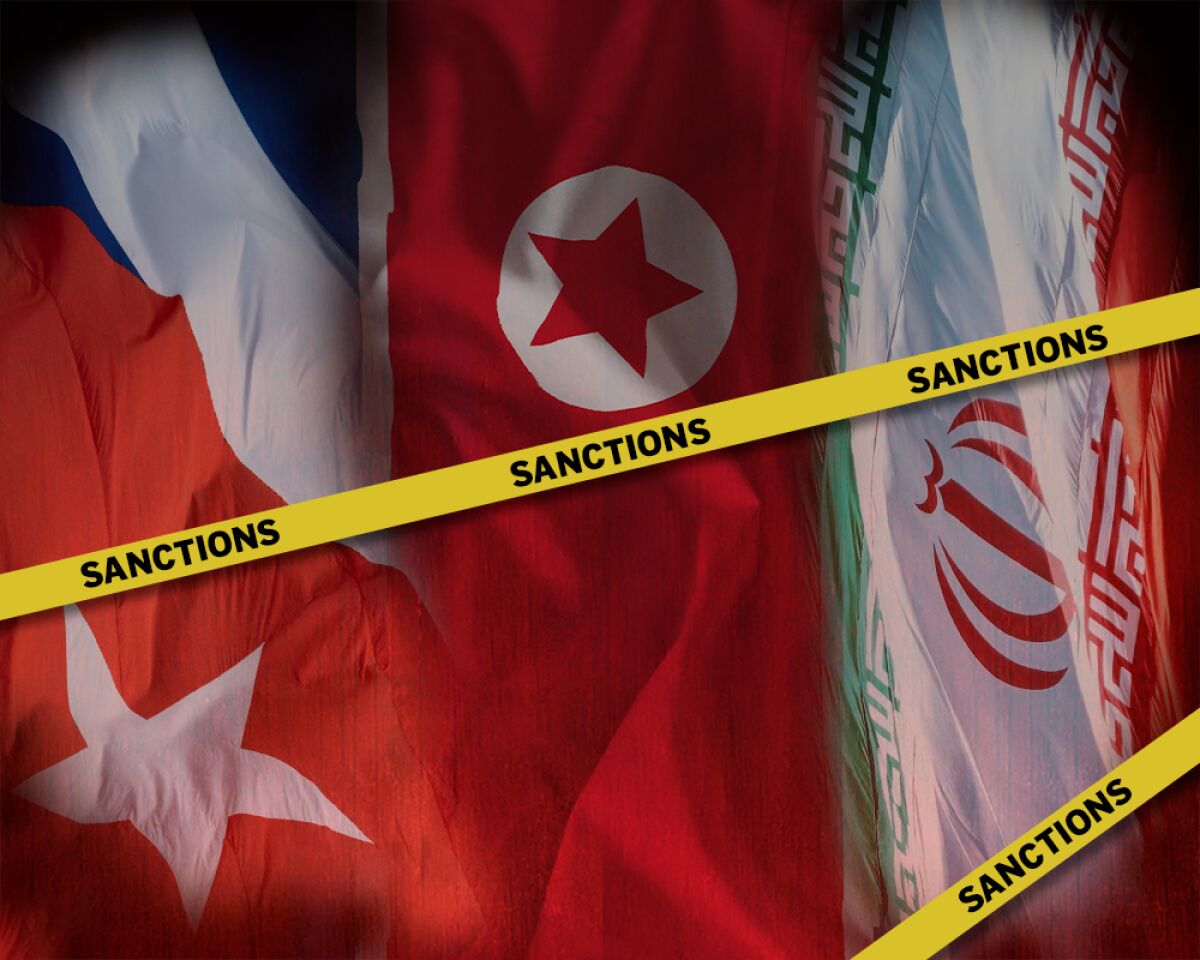
How To Assess the Legitimacy of Unilateral Sanctions
First, sanctions can be either multilateral or unilateral. Multilateral sanctions are imposed by the United Nations Security Council. In contrast, unilateral sanctions are generally imposed by individual countries outside of the U.N. framework and according to their own laws and interests. Unilateral sanctions may be further divided into primary and secondary sanctions. Secondary sanctions, which basically only the U.S. imposes,, require non-American individuals and businesses to comply with U.S. sanctions. This is the controversial long-arm jurisdiction the news often talks about. For reasons of space, this article will mainly discuss unilateral sanctions.
Unilateral Sanctions Permitted under International Law — within Certain Limits
News reports often refer to criticism of unilateral sanctions for violating international law, and there is a certain legal basis to this. In 2013, the Asian African Legal Consultative Organization, which counts more than 40 Asian, Middle Eastern and African countries among its members including Japan and China, publicly criticized unilateral sanctions as a violation of the U.N. Charter and of U.N. Resolution 2625 adopted by the General Assembly in 1970. The organization argued that unilateral sanctions violated the fundamental principles of international relations set out in the aforementioned charter and resolution, among them the sovereign equality of states, territorial integrity, non-interference in the internal affairs of others, and mutual cooperation.
However, this discourse fails to capture the full picture. As it happens, unilateral sanctions are permitted within the framework of international law to a certain extent. In 2001, the U.N. Commission on International Law, responsible for the codification and development of international law, set out the Draft Articles on Responsibility of States for Internationally Wrongful Acts, which referred to unilateral sanctions as countermeasures by a state.
2 Basic Principles of Unilateral Sanctions
According to the draft, a state may implement countermeasures if it can meet two conditions at the same time. First, the countermeasure must be directed against acts of other countries that violate international obligations. Second, the state that has suffered injury from such violation of international obligations may impose countermeasures to make the other state honor its obligations again.
From this, we derive two basic principles of countermeasures (i.e., unilateral sanctions): the principle of deviation from international obligations and the injured party principle. In addition, the draft places restrictions such as timeliness and humanitarianism on the content of countermeasures, but we will not go into the details of those restrictions here. Incidentally, the draft did not ultimately become a statutory international treaty, but its authority has basically been accepted and invoked by various countries and international courts, including the Department of Justice of the Hong Kong SAR when discussing the Anti-foreign Sanctions Law of the People’s Republic of China in 2021.
These two principles can help us weigh a unilateral sanction’s international legitimacy so we can bring clarity to the uncompromising disputes between countries on the issue of sanctions. Take the example of the U.S., the world’s largest user of unilateral sanctions. The sanctions imposed by the U.S. on Iran in 1979 following the hostage incident at its Tehran embassy were a departure from international obligations and the principle of victimhood. (But, of course, this does not include other sanctions the U.S. subsequently imposed on Iran.)
The Blind Spots of Judging by International Law Alone
A closer look at the multiple unilateral sanctions imposed by the U.S. today reveals that many of them fail to conform to the above two principles simultaneously. On the issue of the Russia-Ukraine war, for example, even though Russia has deviated from its obligation to respect the territorial integrity of other countries, the U.S. itself is not a victim, and American countermeasures against Russia are therefore suspected of lacking international legitimacy. Of course, there are blind spots inherent in determining who is right and who is wrong, purely based on international law. For example, if the offending country is a permanent member of the U.N. Security Council with veto power, multilateral sanctions are immediately invalidated! The Russia-Ukraine war is a case in point: Would Russia have supported Security Council sanctions against itself?
In reality, the international political environment in which international law exists is closer to the anarchy of gangster movies, where strength amounts to the power of discourse, than it is to a social environment in which authorities and obligations are clearly defined. In other words, international law sometimes struggles to uphold the delicate balance between justice and the power struggles of states, with the result that the more powerful the state, the greater the scope for violations of international law. The example of the Russia-Ukraine war tells us that international law cannot be the sole criterion for examining the rationality of unilateral sanctions, nor is it a golden rule for judging whether a certain country is right or wrong. But this should not be an obstacle to our understanding international law, because it is only through understanding that we can go beyond the framework of international law and analyze the legitimacy of sanctions in a comprehensive manner.
The author is an international political commentator and compliance professional.

